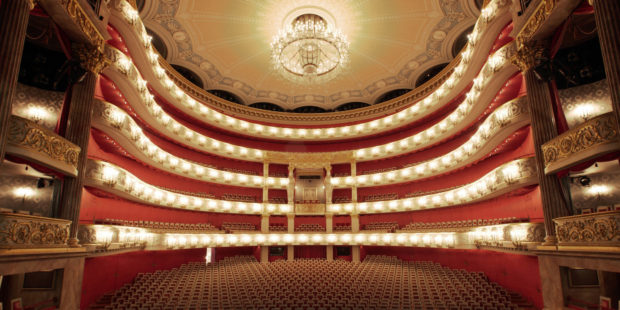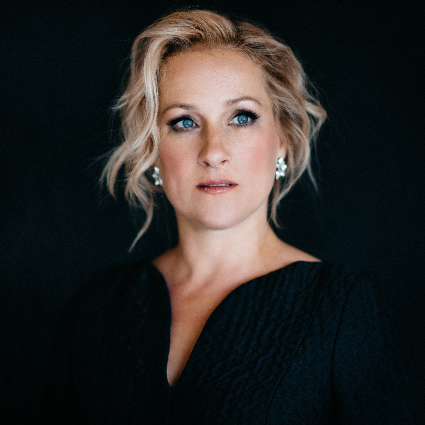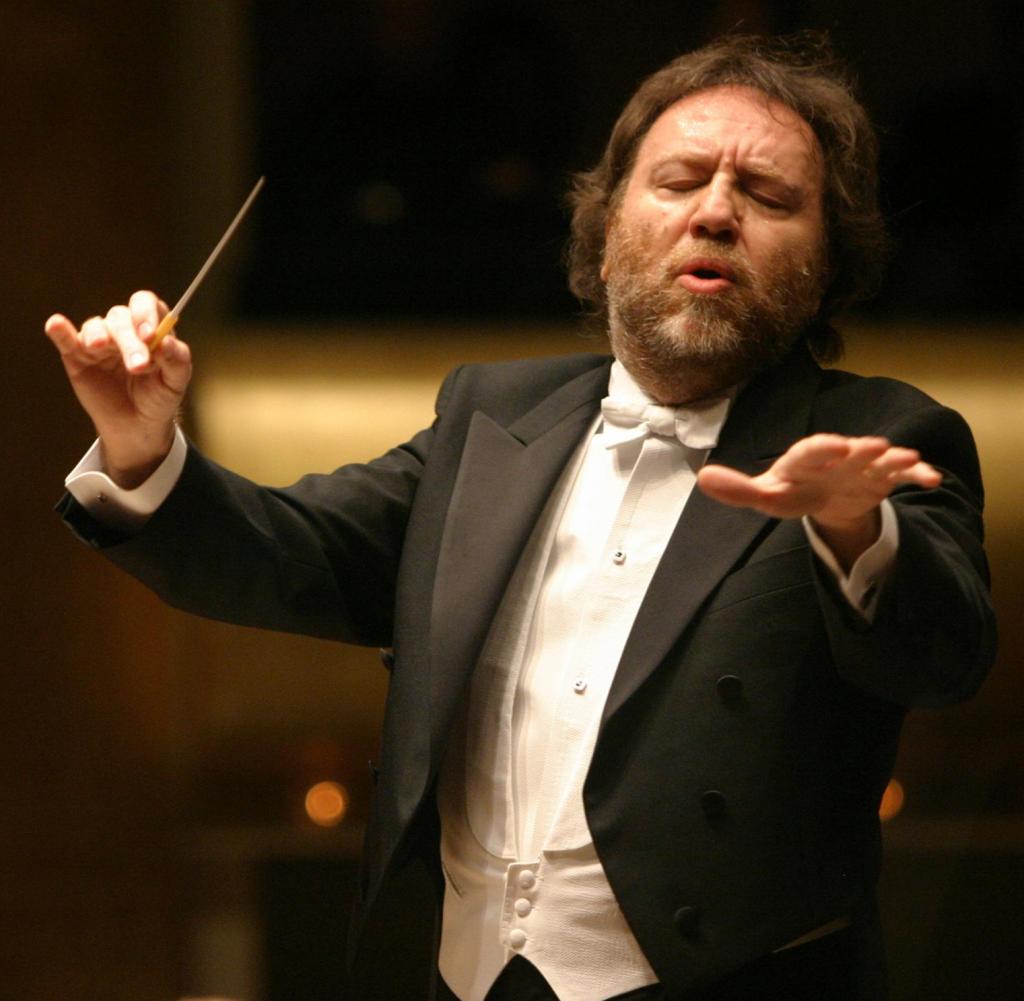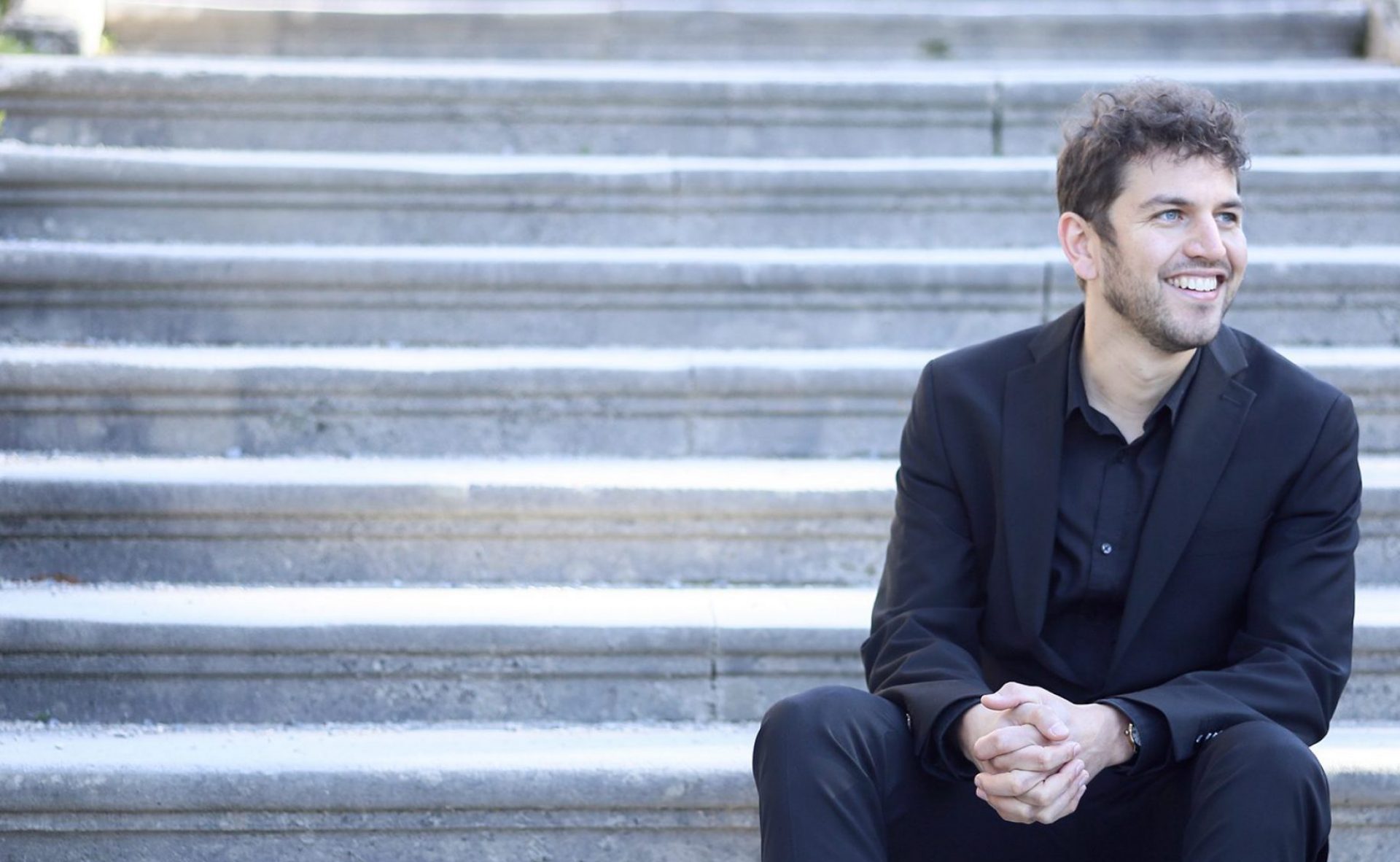Sören Eckhoff is one of Germany’s best known choral conductors, and is currently Chorus Master and Kapellmeister at the Staatstheater Darmstadt. His distinguished career includes a five year stint at Opera Leipzig, working alongside conductor Riccardo Chailly, and a nine year period as Chorus Master of the world-famous Bavarian State Opera (Bayerische Staatsoper) in Munich. Alongside this work, he has been a professor at the University of Music in Würzburg since 1991, where he first met German opera star Diana Damrau.
This interview was done in German. For the original version, please click here.

I think choral singing is one of the most beautiful ways of making music, because you really create something together as a community… I believe that musical quality has nothing to do with individual quality, it’s about the quality of the ensemble.
If you could have dinner with a famous person from history, who would you choose?
Brahms, because he comes from Hamburg, like me!
What would you eat with him?
Fish soup!
If you hadn’t chosen opera, what profession would you have worked in?
I think I would have become a banker.
What is your favorite instrument?
I can’t play it, but I think the horn is very beautiful. As well as the piano, I also played the violin a lot. However, it used to get on the nerves of neighbours when I practised it!
Do you have a favourite opera?
Yes, The Marriage of Figaro, because I think the theatrical humour is very strong – simply ingenious.
Do you have a favourite composer?
Mozart. On the other hand, I also love Wagner very much. There are also a few composers that need more attention, I think, like Sibelius and Niels Gade from Denmark. When I eventually have some free time, I want to look more into them and other Scandinavian composers. There were also different phases of my life. For example, I used to love Schumann with his piano concertos, and then I also loved Debussy.

As a Chorus Master you are basically in a sandwich. You are given a task by the theatre management and you have to carry it out with your chorus.
You have spent most of your career as a Chorus Master. What does this role mean and what are the most important tasks you have to do?
I became a Chorus Master for the first time in an unusual way. I first studied conducting and then started as a Studienleiter1 and Répétiteur in Ulm. A fellow student who had left university with me two years earlier also came to Ulm at the same time as me, as Chorus Master and Kapellmeister2.
After one and a half years, he said: “Sören, I don’t feel like working with the chorus anymore, I can’t do it. Do you want to?” I had met my wife in the school choir, had always sung in choirs and loved choir singing very much myself, and I said to myself, “actually, that’s the right thing to do.” We then suggested to the GMD3 that we switch jobs.
At that time I had been the Studienleiter for over a year and a half and I had just become a father. I noticed that chorus singers have very specific and limited work schedules, whereas the time as Studienleiter was simply too intensive and time-consuming.
But there was another reason to become a Chorus Master. Right at the beginning of my career I saw that a Kapellmeister has to change their position often, about every 2 or 3 years. You have to be able to deal with this constant change and if you are the first Kapellmeister and you don’t make the leap to GMD, it’s difficult even if you are high quality, because even if you are as good or better than the GMD, you still have to leave after 2 or 3 years.
I started working in the theatre in 1987, in the same year our first son was born, and I wanted to give consistency to my family. So when the children were living at home, I spent 4 years in Ulm and 10 years in Würzburg. Only when the children were already grown up did I commute. But we still had a fixed place where we built our house and our children were always in the same schools. That was important to us. After Würzburg I spent 3 years in Heidelberg, 1 year in Augsburg, 5 years in Leipzig, 9 years in Munich at the Bavarian State Opera and now here I am in Darmstadt.
Which part of being Chorus Master do you like best?
As a Chorus Master you are basically in a sandwich. You are given a task by the theatre management and you have to carry it out with your chorus. I think choral singing is one of the most beautiful ways of making music because you really create something together as a community. I want to bring joy to a group in their work and so far I have been relatively successful.
I believe that musical quality has nothing to do with individual quality, it’s about the quality of the ensemble. If you have a good combination of people, then the ensemble is stronger than the same number of people who sing as individuals.
In addition, I have always been good at organising and as Chorus Master I can also influence the rehearsal arrangements better than if I were the conductor somewhere. How I prepare the piece is my responsibility, and I have great freedom.
What are the challenges?
One of the big challenges is being able to effectively plan for the chorus against the interests of the other groups in the theatre. It is important to be able to plan very early in such a way that it makes sense for the choir. Furthermore, and this is not so much the case here in Darmstadt, but it can be the case that every chorus singer is motivated differently, and it is very difficult to create a common standard.
You want to support those who are motivated to do their job constructively, and you want to encourage those who maybe don’t have a such positive attitude anymore without offending them. That sometimes requires tact and sensitivity.
First and foremost, I try to ensure that my rehearsals are so effective that people say that when I rehearse, the rehearsal is important. I also try to approach every choir singer as an artist and to convey to them not that ‘we are at work now’, but to tell them ‘we are rehearsing now – we are trying to make music’. Usually you can encourage 80-90% of the choir with that attitude.

You worked in Munich at the Bavarian State Opera (Bayerische Staastsoper) for nine years. What was it like to work there and what did you learn?
The difficult thing about Munich is that they have over 50 productions in their repertoire and because of this abundance of repertoire it is often difficult to bring an unusual work to premiere level, because every opera needs their attention at all times. The interesting thing about the 9 years that I was there is that in that time 35 or almost 40 new chorus members had to learn the repertoire. There it is different from Vienna, where they have a year to get to know the whole repertoire. Instead in Munich they have to do two revivals every week.
In Munich is that you always have different soloists who often get off the train or plane and go straight on stage. The ensembles, i.e. the orchestra and the choir, must be able to remember this repertoire, and the choir must have the whole thing ready by heart. The soloist sings perhaps three parts in one season, maybe in Milan, Munich, Vienna and at the Met. The chorus singer needs time to recall the pieces, and this was sometimes given less and less consideration in the planning, which was very, very difficult.
You were first in Darmstadt for a production of Messiaen’s only opera, Saint François d’Assisi, which requires a 10-part, 150-voice chorus. It is a masterpiece, but rarely performed. Can you talk about the process and how you organized it?
I was very lucky that I had already rehearsed the Messiaen in Munich. Kent Nagano was conducting there, and he himself got to know this piece as an assistant in the premiere. In the piece there are various sound centers, and what I learned from working with Radio Choirs4 is that if you find modern music terrible, then you will always sing it terribly.
However, if you learn to love the dissonances, it is much easier. In order for that to happen it is first important that you a) understand your melody and the music preceding it, including knowing the sequence of your notes, and b) have the right attitude. Then it will succeed.
At that time we had many individual rehearsals and first got to know the parts on their own, in order to then put them together. I believe that when you have done some study first, it is much easier to then sing your part self-sufficiently. You won’t be bothered when another voice sings a dissonance somewhere near you, because you know ‘my voice is right’.

The special thing about Diana is that she has an enormous charisma which is transferred to the audience. I think there have to be people on stage who have these qualities in their genes, so that the audience can be inspired by the music.
You have been teaching at the university in Würzburg since 1991. What is important to you in your work with young singers?
At the university I teach audition training. I do this because I have noticed that especially in the last 20 years it has become more and more important that you present yourself at your best with audition arias. With many singers I have the feeling that they have already lost out in an audition, because they sing the wrong arias. Especially now for chorus singing, you have to sing an audition aria a bit differently.
The people who are listening hear differently, whether that be the Chorus Master or a fellow singer. You can’t have the quirk, for example, of approaching the notes from below in a chorus audition. The young singers have to get to know such differences, like ‘how do I go in a room?’ ‘How do I give the pianist the sheet music? How do I prepare?’
I have also noticed that many young singers sing in a way that is just about avoiding mistakes. You can hear that they are only thinking about technique. I want to give them an understanding of the audition arias on an emotional level. When they think more about the role they are singing, the aria becomes a completely new one and it is then easier for the singers, because they breathe in with expression. It then also becomes much easier to reproduce, because to do it again, they just have to think about the emotion.
You can’t expect nowadays to get a chorus position with only a beautiful voice. We have to help the students we train here in Germany to be competitive in auditions.
What was it like working with Diana Damrau when she was a student at Würzburg?
Diana Damrau had studied at the university in Würzburg, but at that time with her own singing teacher, who practically brought her to the university. She had her first engagement in Würzburg and there she sang Eliza from “My Fair Lady”. That was her first big part and I was the musical director. So we got to know each other there.
The special thing about Diana is that she has an enormous charisma which is transferred to the audience. I think there have to be people on stage who have these qualities in their genes, so that the audience can be inspired by the music. Such people can transfer this enthusiasm in a way that the audience is really affected. This is Diana.
When I took over my first opera chorus, there was still a group of older men who were employed in the chorus, who had their regulars’ table in the canteen and just put a beer mat over their beer when they had to go on stage.
How has the opera scene changed during your career?
When I took over my first opera chorus, there was still a group of older men who were employed in the chorus, who had their regulars’ table in the canteen and just put a beer mat over their beer when they had to go on stage. Even in the 70s you still had rehearsals from 10am to 3pm and then from 5pm to 10pm. During this time the chorus had to be available.
A lot has changed compared to that time. In Ulm in those days, we would have 20 different trips to nearby places, which meant that the opera would be on tour much more often. We left at around 1pm and came back at half past midnight, and the next morning we would have a rehearsal again at 11 am. A lot of positive things happened in those days, and many young singers today don’t even know what it means to be at a municipal theatre.
When I came to Würzburg, I was asked’ ‘what, you have children? How are you going to combine that with a profession in the theatre?’. In the past you had to have a leave of absence permit to be allowed to leave the city. I remember one time when an actor injured himself while playing football, and at 2pm everyone was told that that in the evening we wouldn’t be performing Faust but Der Vögelhändler. There was a singer who was not available, and as a result, the performance of Der Vögelhändler could not go ahead. He had to pay 30,000 Deutschmarks to the box office, because that would have been the whole evening’s takings.
When my first son was born just before 11 am, I was booked on the rehearsal schedule and so was back at work at 1pm as Studienleiter. In between I made two or three phone calls. The fact that you have all these possibilities today like parental leave – that didn’t exist with us. And somehow you were much more connected to your profession than you are today. I think it’s good that things like parental leave are there now.
The opera choruses have gained musically. The singers’ training has become better compared to back then. In my first choruses I had singers who simply had a beautiful voice and therefore stood out in the Extra-Chor, or trombonists who had problems with their lips and then retrained as chorus singers.
Today the percentage of people coming from outside of Germany has increased a lot. In 1997 I met the first person from Asia in a radio choir, and only in 2001 did I have the first Asian in my opera chorus. Today you would have to close down all the opera choruses if you didn’t have Asian tenors. That is quite astonishing. I do think that there should be a higher quality control of the German language. We always have a language coach for French and for Italian, but I think sometimes you need a language coach for German in German theatres.

You have to know how a singer breathes. You should have some experience as a chorister yourself, so that you know: What annoys me? What should I avoid as a Chorus Master?
What is important for you in an opera chorus sound compared to other choirs?
An opera chorus defines itself very differently from a radio choir – there are completely different voices. You cannot re-educate an opera chorus to be more like a radio choir, singing without vibrato; it wouldn’t work at all. Above all, you can’t shake off the individual opera sound, because then you have nothing left. You have to use and refine it and keep it as an overall sound.
It’s nice that we always have six weeks of stage preparation and in the end you usually only have to rehearse the finer points in the rehearsals that follow the stage rehearsals. Until then, you have to rehearse as flexibly as possible so that a) the singers pick up the tempo of the conductor and b) they are also open to experiments on stage.
Then you can say, ‘here we have to stay more precisely in rhythm because there is no contact with the conductor’. Or ‘here we can work even more musically, because we have a good view of the conductor’. The stage rehearsals give a certain freedom to be able to do that.
What does it take to be a good Chorus Master? How can somebody become one?
In Germany there is no special training for Chorus Masters in opera. I have spoken to many music universities about this problem. Something has to happen in German education to prepare people for the situation of ‘What can I expect as a chorus master?’ and ‘What do I have to do?’
There are some Chorus Masters who work so meticulously in the first rehearsals in the chorus room that they themselves and the chorus singers are frustrated when they come on stage. Maybe the chorus has no contact at all with the conductor, and the choir is spread all over the stage. I always try to find out early: What will the stage look like? How big is the room? What kind of costumes will they wear? How should they move?
As there is no such thing as this special training for Chorus Masters, I think the path I have taken is the right one: conducting studies, with piano and singing as second studies. I myself studied singing as a second study and also accompanied very often in the song class. You have to know how a singer breathes. You should have some experience as a chorister yourself, so that you know: What annoys me? What should I avoid as a Chorus Master?
I think we should think much less about there being separate jobs in the theatre; I simply find this demarcation wrong. It would be good to see chorus singers being used more as soloists and perhaps soloists helping out in the choir, so that we can create a better quality through this flexibility.
With Riccardo Chailly, I did Manon Lescaut and he asked me to come to Milan. I was there for two days and he played the whole piece at the piano. We simply got along with each other. I knew what he meant, even if he couldn’t put it into words.
You have worked with many very famous conductors in your career. As a Chorus Master, what do you expect from a conductor?
First of all the normal things. What tempo do they want, how will they make the transitions, or can they clarify some questions that will save you time. I always sit down with the conductor for two hours, because you can clarify a lot of things beforehand. The best example was Claudio Abbado, who had never experienced it like this before. I went to him and asked: “How am I supposed to make this transition here?” He looked at it and said: “Yes, let’s go through it now.” At first I was perplexed. I said “I’m not doing this rehearsal for me, I’m doing it so you’ll be happy with the chorus.”
I want to get a sense of what’s going to be important to a conductor. There are a few conductors where you know pretty well what is going to happen, and there are conductors who react very differently. With Riccardo Chailly, for example, I did Manon Lescaut and he asked me to come to Milan. I was there for two days and he played the whole piece at the piano. Then I knew about it, rehearsed the choir in the same way and it was then that he asked me to be his assistant in the production. I even conducted the main piano rehearsal, because he liked it so much. That was a great experience for me.
Is there a conductor you enjoyed working with the most?
Riccardo Chailly, definitely. I also prepared concerts with him. Until then it was normal that if the Gewandhaus Orchestra needed a choir, it was the MDR Choir, a radio choir. He said right from the start that we would do the Ninth Symphony with the opera chorus. He liked the opera chorus so much that we joined the orchestra on the big tours with it all over Europe: Lucerne, Rotterdam, London, and also Hong Kong. It was great. We simply got along with each other. I knew what he meant, even if he couldn’t put it into words.
There was a rehearsal at the Gewandhaus once and he said. “There’s something wrong.” I was standing next to him and I knew how to get my basses to do the right thing without talking to him. Once I’d done it, he just said “What have you done now?!” We worked well together and it was great.

I believe that the theatre has to rediscover itself anew. It is much more important to think about the original idea of theatre, which was to give a certain self-confidence to the people. People also went to the theatre because emotions were shown there that they personally weren’t allowed to express themselves.
As a Chorus Master, what do you expect from a stage director?
I think it’s fundamentally wrong that a conception rehearsal only takes place before the first stage rehearsal. I would like it to happen before the first musical rehearsals, because then you can already consider the director’s approach during the rehearsal work much more. In order to get the chorus to the best the can be, I think it’s good if I have the feeling that the director takes me seriously and listens to me, to what is feasible and what is not. Then we have a good working relationship.
What is the future of opera, especially in Germany?
At the beginning we talked a bit about the fact that the general conditions for a job at a theatre are very pleasant. Nowadays you can better combine family and theatre.
The security of the profession is much better compared to the 70s and 80s. However, I have the feeling that this can also lead to a certain laziness. As I said, when I started my theatre life, I was in the theatre from morning till night, except for a few hours, and I got into it because I was so enthusiastic about it. Today, that can still be the case, but it can also be the exception, and it would be a pity if it stayed that way.
Perhaps with a crisis like Corona, during which you simply cannot make music together, you come to a point where you say, “why am I doing this profession? What do I want to achieve with my art?” And that’s where I think we have to rediscover ourselves and not just think about our collective bargaining rights, so that theatre remains exciting. If it isn’t, at some point it can wither away into a museum and no one will be interested in it anymore, and that would be bad. But the danger exists.
I believe that the theatre has to rediscover itself anew. It is much more important to think about the original idea of theatre, which was to give a certain self-confidence to the people. People also went to the theatre because emotions were shown there that they personally weren’t allowed to express themselves. You don’t really need much for that: a table, a lamp, a chair are enough to conjure up a stage set. Often a lavish stage design distracts from the essence of what theatre is about, namely bringing emotions onto the stage.
Notes and Links
- A Studienleiter is the person in the opera house whose job it is to ensure that every singer is musically prepared for the rehearsals and performances they will take part in. They schedule one-on-one rehearsals (coachings) for the singers with themselves and other repeiteurs, and organise larger rehearsals in the theatre.
- A Kapellmeister is a conductor who usually has the second or third choice of performances to conduct after the Generalmusikdirektor. Often there is a first and second Kapellmeister in a theatre.
- A General Music Direktor (Generalmusikdirektor or GMD) is the musical head of a theatre in the German opera system. They are a conductor who is in charge of musical programming and planning, the artistic output of the music staff and singers, and they have the first say on what they will conduct in a season. They also have a strong influence on any casting decisions taken by the theatre.
- A Radio Choir is a large, full-time professional choir (usually of at least 40 singers) that performs choral repertoire (not opera) in concert. They often are affiliated to, or have their origins in, a radio station, hence the name. There is no real equivalent in the UK or USA, though the BBC Singers are similar in some ways.
- You can learn more about the Bavarian State Opera (Bayerische Staatsoper), through their website here.
- You can learn more about the University for Music in Würzburg, where Sören teaches, here.
- Find out about upcoming performances at Staatstheater Darmstadt, where I work together with Sören, here.
